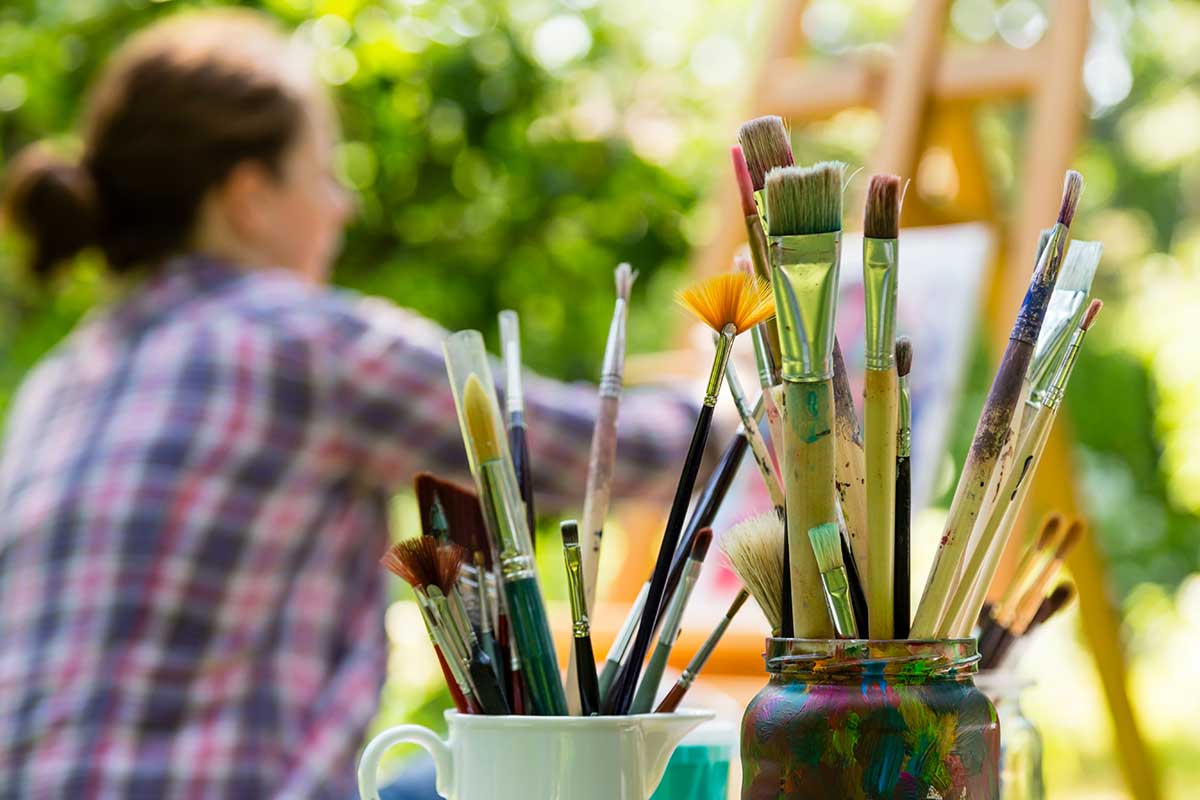3 Benefits of Art Therapy

Art therapy is a therapeutic practice that uses creative expression—such as drawing, painting, sculpting, or other artistic activities—as a way to explore emotions, process trauma, and promote healing. It is guided by trained art therapists who provide a safe, judgment-free environment where clients can channel their thoughts and feelings into visual or tangible forms. Unlike traditional talk therapy, art therapy enables clients to express themselves nonverbally, making it an effective option for those who may struggle to articulate their emotions with words.
Creativity is just one of the many supportive services we offer at Woodland Recovery Center to help clients experience the benefits of art therapy firsthand. Alongside group therapy and trauma-focused counseling, our holistic treatments are designed with you in mind. Call us at 662.222.2989 to learn more about our art therapy program.
Does Art Therapy Work?
You might be thinking: “All this sounds nice, but does art therapy actually work?” It’s a fair question. After all, you’ve likely tried many approaches and want something that genuinely supports your healing. Art therapy for mental health issues has gained increasing recognition as a valuable approach for individuals navigating challenges like addiction and recovery. Licensed art therapists are trained professionals who understand the delicate interplay of emotions, trauma, and creativity. They guide you not only in creating art but also in understanding what that art says about your inner world.
3 Benefits of Art Therapy
Recovery isn’t just about quitting a substance; it’s about rediscovering yourself and finding healthier ways to cope with life’s challenges. Let’s explore the benefits of art therapy that can support and enhance your healing process.
1. Emotional Release and Clarity
One of the most immediate benefits of art therapy is the emotional release it provides. Addiction often comes with heavy emotional baggage—resentment, fear, anger, shame—that gets stored deep inside. When you’re given a blank page and the freedom to express whatever comes to mind, you can pour these feelings out visually.
Instead of holding them in, you’re letting them flow. This process can bring a sense of relief and clarity. Over time, you start to understand what’s been driving your cravings, your self-destructive thoughts, or your patterns of isolation. Seeing these emotions on the page makes them more tangible and often less intimidating.
2. Building Self-Esteem and Confidence
Struggling with addiction can wear down your self-esteem. You might feel like you’ve failed yourself or the people you love. But through art therapy, you get to experience small, meaningful victories. Even if you’ve never considered yourself “artistic,” you can still create something unique. You can look at your artwork and think, “I did that.” That sense of achievement, however small, can do wonders for your self-image.
3. Learning Healthy Coping Strategies
Addiction often thrives on unhealthy ways of managing stress and emotional pain. Art therapy invites you to replace harmful coping mechanisms with something safer, healthier, and more constructive. Instead of turning to substances, you can turn to a paintbrush or a lump of clay. The act of focusing on a creative task helps calm your nervous system, bringing you into the present moment. Over time, this practice can become a solid coping strategy that you rely on to navigate cravings, anxieties, and emotional turbulence.
Think about the last time you tried to explain something deeply personal to another person and couldn’t find the right words. Art can serve as that missing language. It can open doors to emotions buried beneath years of pain and struggle, offering a safe place to let them come forward. In this sense, art therapy isn’t just “creating something”; it’s creating a path toward self-understanding, acceptance, and freedom.
Start Healing Through Art Therapy at Woodland Recovery Center Today
Our art therapy program at Woodland Recovery Center provides a supportive space for you to explore and express your emotions in ways that feel natural and empowering. With the guidance of trained therapists, we help you uncover new coping strategies, rebuild your confidence, and gain a deeper understanding of yourself. Art therapy isn’t just about creating art—it’s about creating change.
If you or a loved one could benefit from an art therapy program, reach out at 662.222.2989 or fill out our online contact form.


